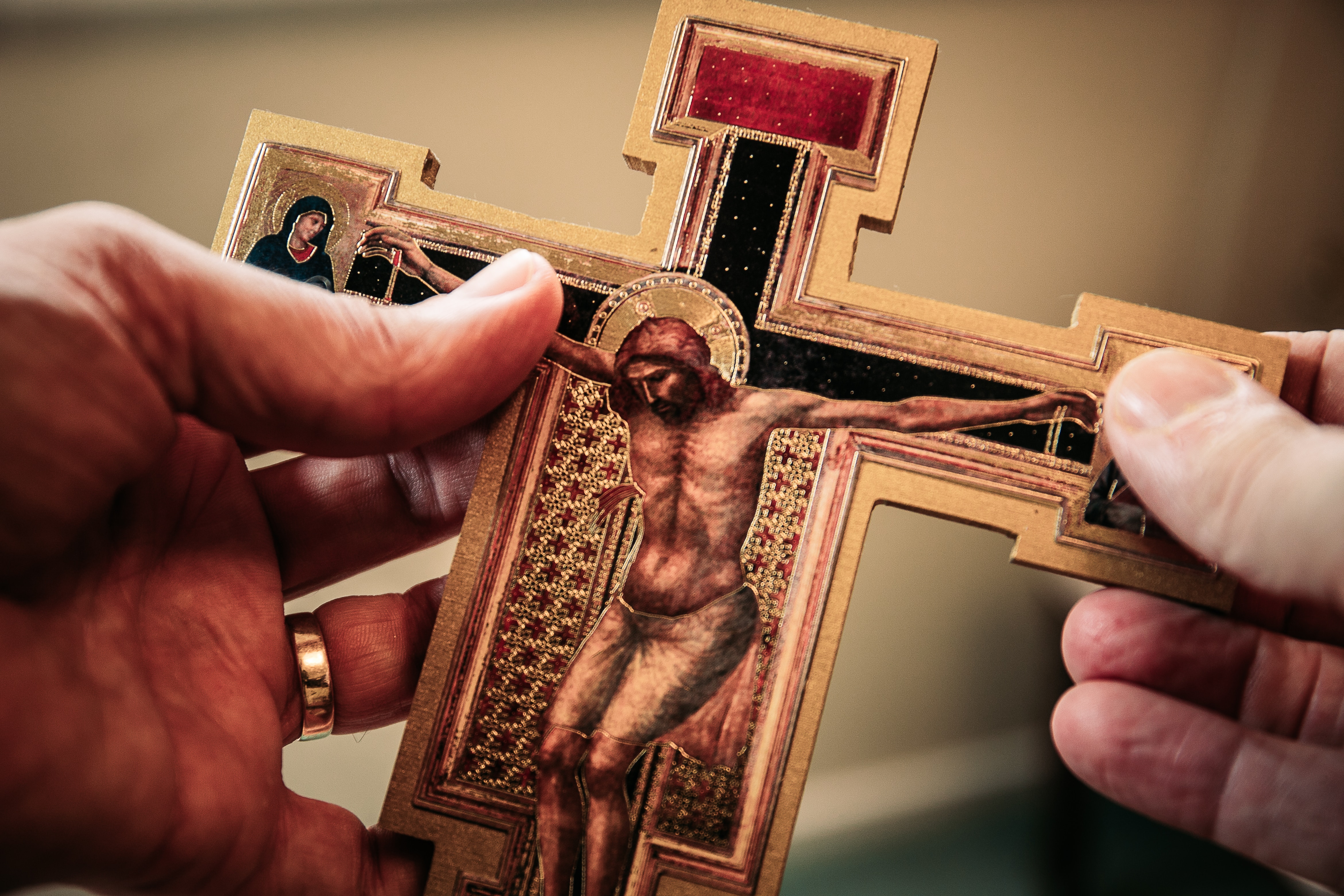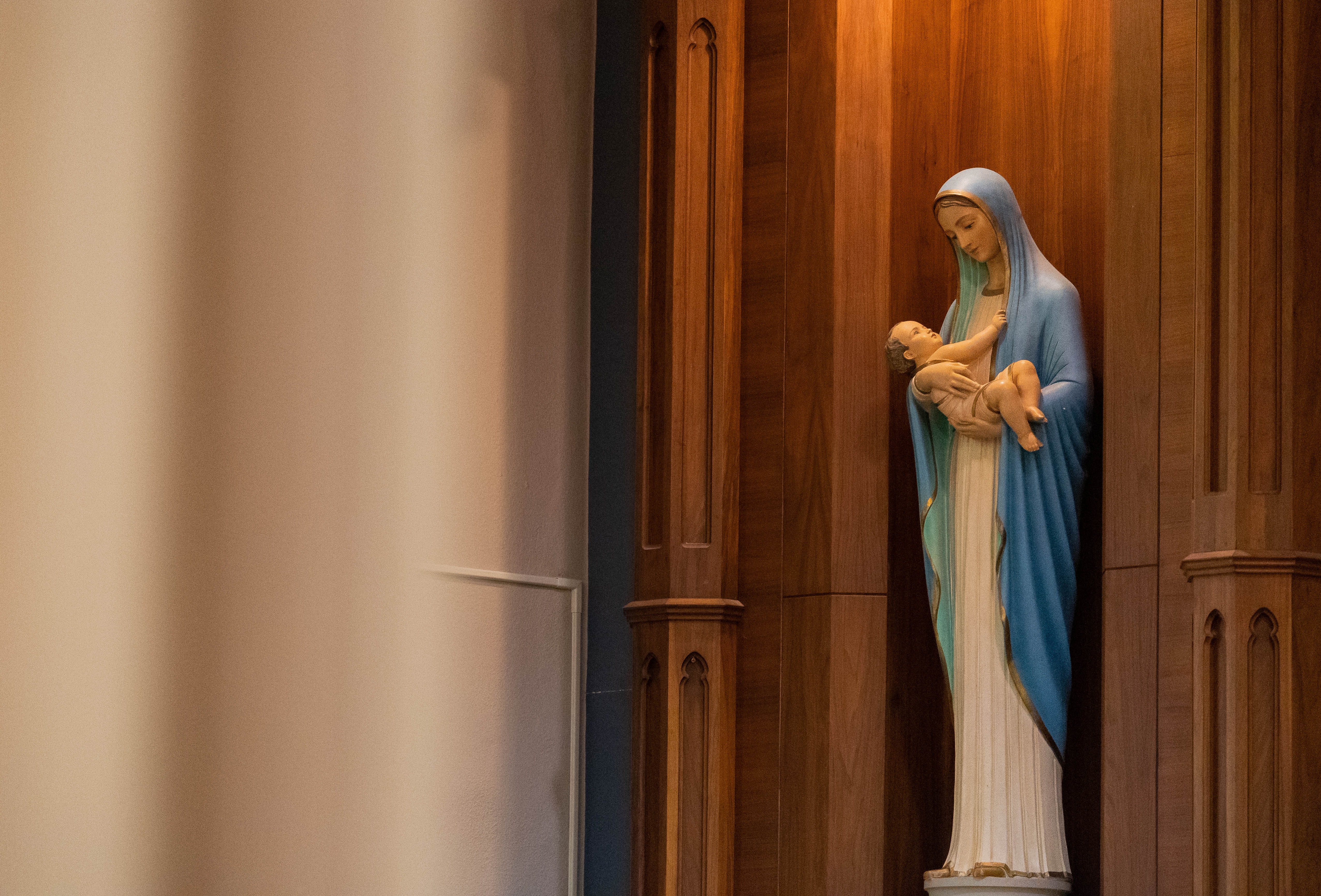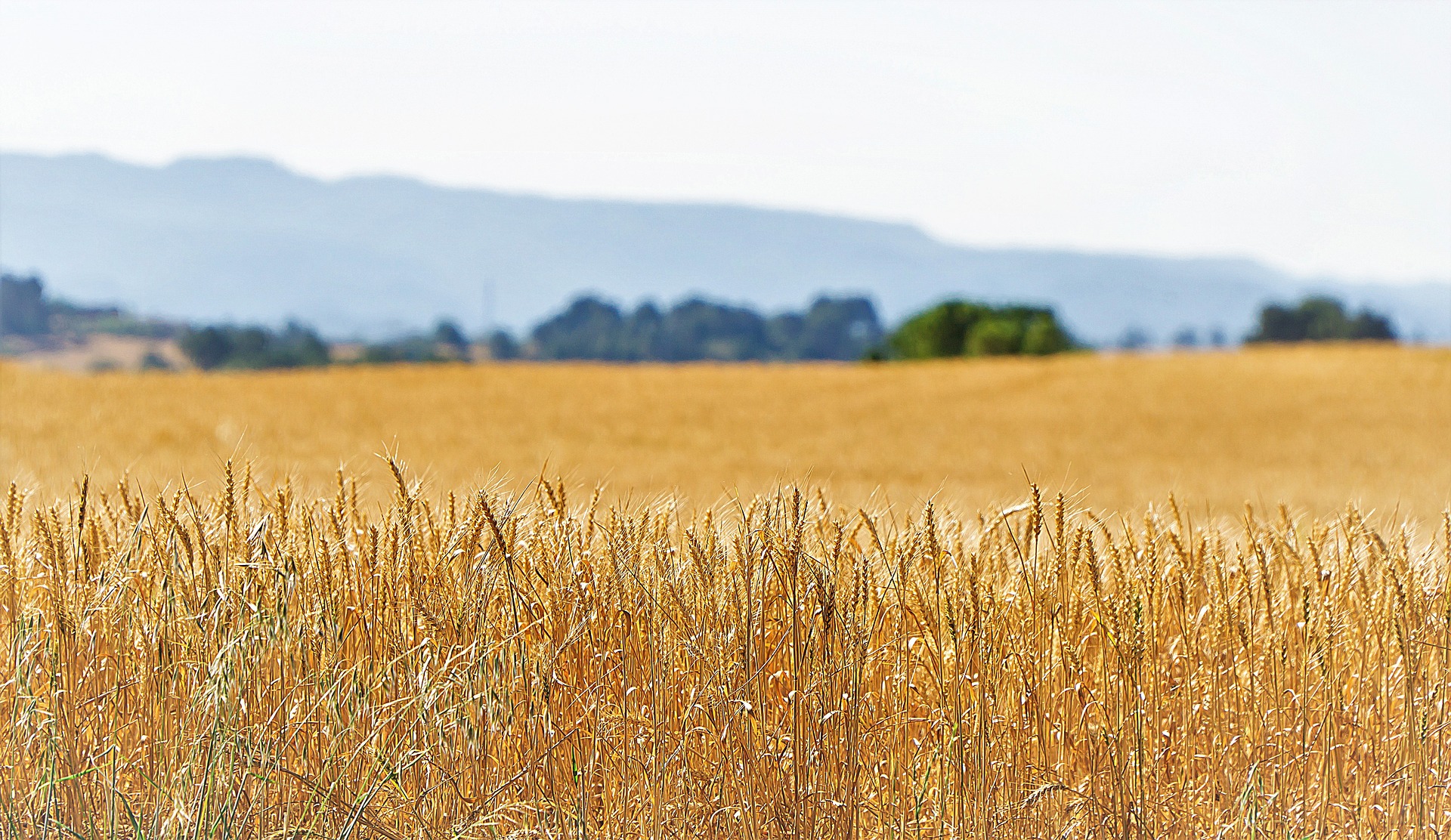When I was a youth minister, “What Would Jesus Do” was everywhere. Do you remember that? “WWJD” was plastered on hats, tee shirts, rubber bracelets, lollipops, stickers, keychains, notebooks and more. It was a good question, meant to encourage us all to pause and consider, before speaking or acting, what Jesus would say or do in that situation. I’m not sure how much it really helped. We cannot think like Jesus in any way unless we know him. And before we can know him, we need to believe that he loves us and saved us; to believe that his Father is our Father and we are deeply loved and cared for by the Father.
Two phrases cause me to pause in today’s Gospel: “It is enough for the disciple that he become like his teacher (Matthew 10:25) , and “So do not be afraid; you are worth more than many sparrows” (Matthew 10:41). How often do we think enough is not quite enough? We can do more, better, try harder, say more prayers, serve only organic, fresh food cooked by our own hands to our family, make our own clothes, never overdo it on screen time, and spin flax into gold. Then, maybe then, we will be enough.
What Jesus wants for us is to be like Him. When you look at Jesus and think, okay, I want to be like Him, what comes to mind for you? For me, it is His love, compassion, radical obedience to the Father, prayer, solitude, community, healing, and service. That is the disciple I want to become, so then, when the Father calls me to do something that my humanity says is not possible, I can go to the other verse that struck me, “Do not be afraid; you are worth more than many sparrows.”
In life, we are often asked to serve one another in a way that seems insurmountable. If we rely on our own organized, competent selves without first turning toward God, we may not serve well or have the best outcome, for ourselves or the other person or situation. Become like our Teacher; become like Jesus. He knows who He is, the Son of the Father. Know who you are, a child of the Father. If we become like Jesus in knowing who we are, then we will not need to be afraid. We will be able to embrace enough, doing what God asks of us.
Cuando yo era ministro de jóvenes, “What Would Jesus Do?” (¿Qué haría Jesús?) estaba en todas partes. ¿Te acuerdas? “WWJD” estaba pegado en gorros, camisetas, pulseras de goma, chupetines, etiquetas, llaveros, cuadernos y más. Era una buena pregunta para animarnos a todos a hacer una pausa y considerar, antes de hablar o actuar, lo que Jesús diría o haría en esa situación. No estoy segura si realmente ayudó en algo. No podemos pensar como Jesús de ninguna manera si no lo conocemos. Y antes de poder conocerlo, debemos creer que él nos ama y nos salvó; creer que su Padre es nuestro Padre y que somos profundamente amados y cuidados por el Padre.
Dos frases me hacen detenerme en el Evangelio de hoy: “Le basta al discípulo ser como su maestro” (Mateo 10,25) y “no tengan miedo, porque ustedes valen mucho más que todos los pájaros del mundo” (Mateo 10,41). ¿Con qué frecuencia pensamos que lo que basta realmente no basta? Podemos hacer más, mejor, esforzarnos más, rezar más, servir solo alimentos orgánicos y frescos cocinados por nuestras propias manos a nuestra familia, coser nuestra propia ropa, nunca excedernos en el tiempo frente a la pantalla y convertir el lino en oro. Después de hacer todo eso, tal vez seremos suficientes.
Lo que Jesús quiere para nosotros es que seamos como Él. Cuando miras a Jesús y piensas, está bien, quiero ser como Él, ¿qué te viene a la mente? Para mí, es Su amor, compasión, obediencia radical al Padre, oración, soledad, comunidad, sanación y servicio. Ese es el discípulo que quiero llegar a ser, para que cuando el Padre me llame a hacer algo que mi humanidad dice que no es posible, pueda ir al otro versículo que me llamó la atención: “no tengan miedo, porque ustedes valen mucho más que todos los pájaros del mundo”.
En la vida, a menudo se nos pide que nos sirvamos unos a otros de una manera que parece insuperable. Si confiamos en nosotros mismos, organizados y competentes, sin volvernos primero hacia Dios, es posible que no sirvamos bien o no obtengamos el mejor resultado, ni para nosotros mismos ni para la otra persona o situación. Sea como nuestro Maestro; llegue a ser como Jesús. Él sabe quién es, el Hijo del Padre. Conozca quién eres, un hijo del Padre. Si nos volvemos como Jesús al saber quiénes somos, no tendremos que tener miedo. Podremos recibir lo suficiente, haciendo lo que Dios nos pide.
 Deanna G. Bartalini, M.Ed.; M.P.A., is a certified spiritual director, writer, speaker and content creator. The LiveNotLukewarm.com online community is a place to inform, engage and inspire your Catholic faith. Her weekly Not Lukewarm Podcast gives you tips and tools to live out your faith in your daily life.
Deanna G. Bartalini, M.Ed.; M.P.A., is a certified spiritual director, writer, speaker and content creator. The LiveNotLukewarm.com online community is a place to inform, engage and inspire your Catholic faith. Her weekly Not Lukewarm Podcast gives you tips and tools to live out your faith in your daily life.
Feature Image Credit: Max Letek, unsplash.com/photos/grey-birds-on-trees-wz8lIQqytgo












